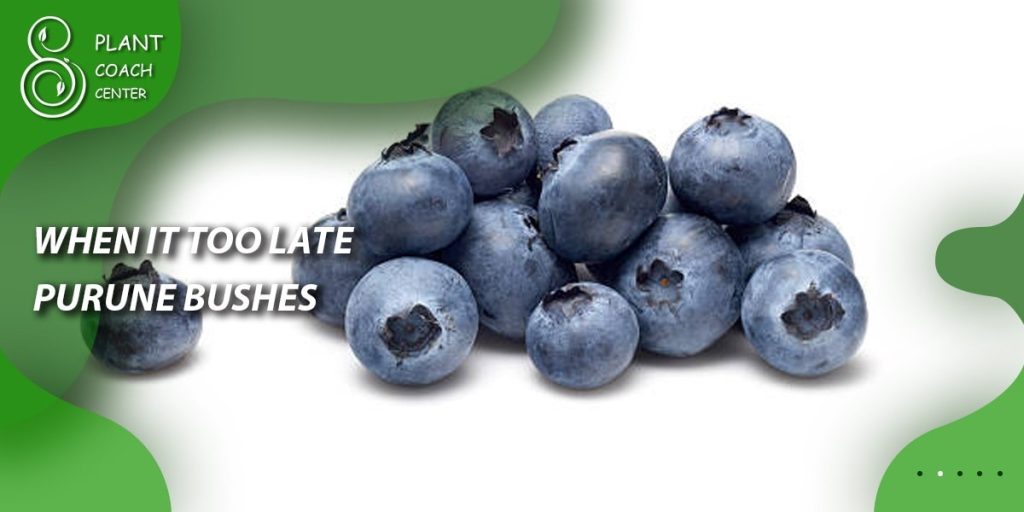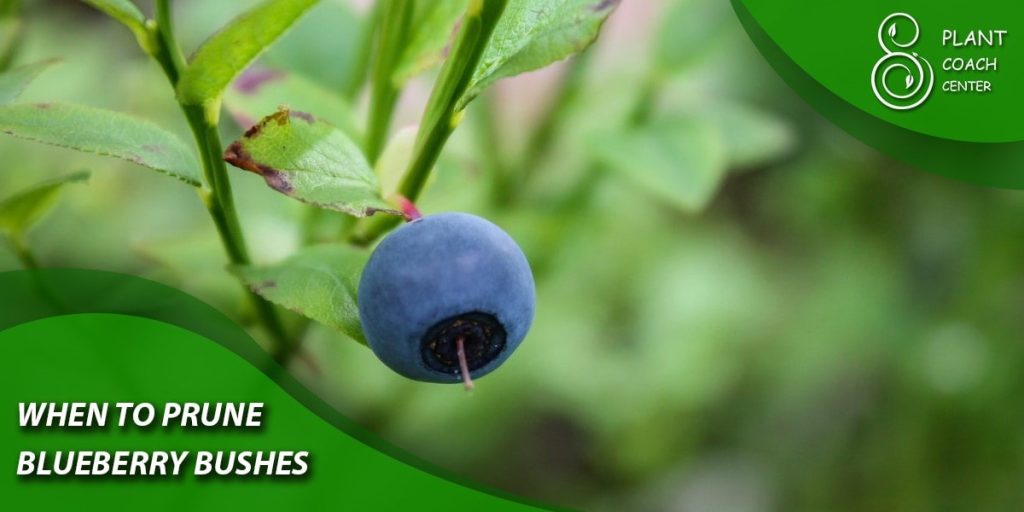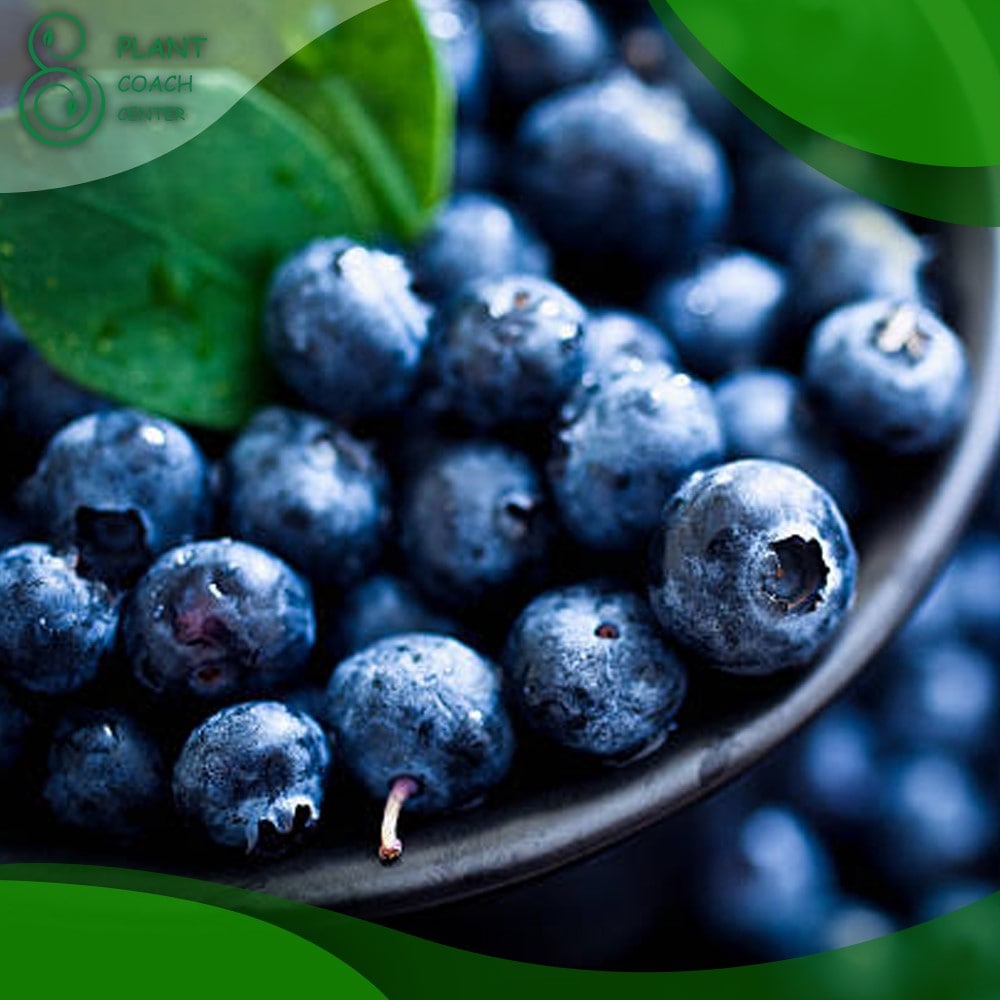When Is It Too Late to Prune Blueberry Bushes?
As gardeners, we know that pruning is an important part of plant care. But when it comes to blueberry bushes, it can be confusing to know when the right time is to prune. In this article, we’ll explore the best practices for pruning blueberry bushes, including when it’s too late to prune. This comprehensive guide is brought to you by Plant Coach Center, your go-to resource for all things plant-related.

Understanding Blueberry Bush Growth
Life cycle of a blueberry bush
Blueberries are perennial shrubs that can live for several decades. They go through a cycle of growth, dormancy, and fruit production each year. Understanding the life cycle of a blueberry bush is key to knowing when to prune.
How pruning affects growth and fruit production
Pruning is important for maintaining the health of a blueberry bush, but it can also affect the plant’s growth and fruit production. Proper pruning can increase the size and quality of the fruit, while improper pruning can lead to stunted growth and poor fruiting.
Factors that affect blueberry bush growth
There are several factors that can affect the growth of a blueberry bush, including soil pH, fertilization, moisture levels, and sunlight. Understanding these factors can help you make informed decisions about when to prune.
When to Prune Blueberry Bushes
General guidelines for pruning blueberry bushes
Pruning is typically done in the late winter or early spring when the bush is dormant. However, there are some general guidelines to follow when deciding when to prune your blueberry bushes.
Best time of year to prune blueberry bushes
The best time to prune blueberry bushes is in late winter or early spring, before new growth begins. This allows the bush to recover from pruning before the growing season begins.
Signs that it’s too late to prune blueberry bushes
If you miss the window for pruning in the late winter or early spring, there are some signs to look for that indicate it’s too late to prune. These include the presence of flower buds or new growth on the bush.

Effects of Pruning Blueberry Bushes Too Late
Impact on fruit production and quality
Pruning blueberry bushes too late can have a negative impact on fruit production and quality. Late pruning can lead to smaller fruit size, lower yields, and reduced flavor.
Risk of disease and pest infestations
When you prune blueberry bushes too late, you leave the plant vulnerable to disease and pest infestations. The open wounds on the plant are more susceptible to infection, which can lead to long-term damage.
Long-term effects on the health of the blueberry bush
Pruning blueberry bushes too late can also have long-term effects on the health of the plant. It can lead to weakened growth, increased susceptibility to pests and diseases, and reduced lifespan.
How to Prune Blueberry Bushes?
Tools and techniques for pruning blueberry bushes
There are several tools and techniques that can be used for pruning blueberry bushes, including hand pruners, loppers, and saws. It’s important to use sharp tools to make clean cuts, and to avoid removing too much of the plant at once.
Step-by-step guide to pruning blueberry bushes
To prune a blueberry bush, start by removing dead, diseased, or damaged wood. Then, thin out the branches to allow for better air flow and light penetration. Finally, shape the bush to the desired size and shape.
Tips for optimal blueberry bush health and fruit production
In addition to proper pruning, there are several tips for maintaining optimal blueberry bush health and fruit production. These include maintaining proper soil pH, fertilizing appropriately, and providing adequate moisture and sunlight.
Common Problems with Blueberry Bushes
Overview of common blueberry bush problems
Blueberry bushes are susceptible to a variety of problems, including pests, diseases, and environmental stress. It’s important to be able to identify and diagnose these problems in order to take appropriate action.
How to identify and diagnose problems
Common problems with blueberry bushes include insect pests like aphids and spider mites, fungal diseases like powdery mildew and botrytis, and environmental stressors like drought and frost damage. To identify and diagnose these problems, it’s important to look for specific symptoms and signs.
Solutions and preventative measures for common problems
There are several solutions and preventative measures that can be taken to address common problems with blueberry bushes. These include using organic pest control methods, improving soil health, and providing adequate water and nutrients.

Best Practices for Blueberry Bush Care
Soil preparation and fertilization
Proper soil preparation and fertilization are key to maintaining healthy blueberry bushes. This includes testing soil pH, adding organic matter, and fertilizing appropriately.
Watering and irrigationAdequate watering and irrigation are also important for blueberry bush health. Blueberry bushes require consistent moisture, but they are also susceptible to root rot if the soil is too wet. It’s important to water deeply and frequently during the growing season, and to monitor soil moisture levels to avoid overwatering.
Pest and disease management
Preventing and managing pests and diseases is crucial for maintaining healthy blueberry bushes. This includes using organic pest control methods, regularly inspecting the bushes for signs of pests and diseases, and taking appropriate action when problems arise.
Harvesting and storage
Harvesting blueberries at the right time is important for optimal flavor and quality. Blueberries should be picked when they are plump, dark blue, and easily come off the bush. Proper storage is also important for preserving the quality of the fruit.

Additional Resources
For more information on blueberry bush care and pruning, check out some of these additional resources:
– The Blueberry Gardener’s Guide: A comprehensive guide to blueberry care, including pruning and pest management.
– The Pruning Book: A guide to pruning techniques for all types of plants, including blueberries.
– The Old Farmer’s Almanac: A trusted resource for gardening advice, including tips on blueberry care and pruning.
Conclusion
In conclusion, pruning blueberry bushes is an important aspect of maintaining healthy plants and producing a bountiful harvest. Timing is critical when it comes to pruning, and it’s important to avoid pruning too late in the season. Late pruning can have negative effects on fruit production, plant health, and even the lifespan of the plant.
By following the guidelines and best practices outlined in this article, you can ensure that your blueberry bushes remain healthy and productive for years to come. Remember to visit PlantCoachCenter.com for more information on blueberry bush care and other plant-related topics.
When is it too late to prune blueberry bushes?
Late winter or early spring.
Can I prune blueberry bushes in summer?
It's best to avoid pruning in summer.
What if I prune blueberry bushes in late spring?
It may affect fruit production for the current season.
Is it okay to prune blueberry bushes after they flower?
Yes, but be cautious not to remove too many buds for next year's crop.







